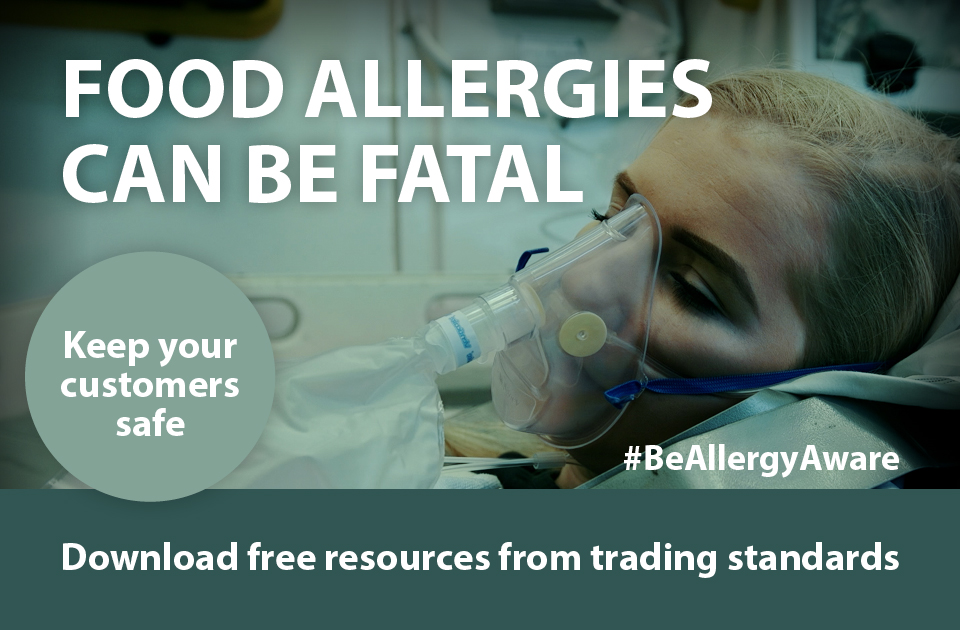With new legislation on allergen labelling coming into force next month, the Chartered Trading Standards Institute (CTSI) is hosting a campaign to inform businesses of their responsibilities to label food correctly.
The Be Allergy Aware campaign was created by the Greater Gwent Food Group – a partnership between Blaenau Gwent, Caerphilly, Monmouthshire, Newport City and Torfaen councils – with the support of the Food Standards Agency (FSA). It includes a handy factsheet for businesses, a series of posters in several languages reminding customers to notify staff of any allergies they may have, and an in-depth information video explaining the risks of improperly labelled food.
It urges businesses to “double-check, never guess” whether the food they sell contains ingredients that may be allergens, and whether their customers have any food allergies or intolerances.
The campaign arrives ahead of the implementation of ‘Natasha’s Law’ on October 1, which will require all food businesses to provide full ingredient lists and allergen information on foods pre-packaged for direct sale in the UK.
The law is named after Natasha Ednan-Laperouse, a 15-year-old who tragically died after suffering an allergic reaction to a baguette that contained sesame seeds but which did not declare allergens on its packaging.
The 14 allergens that must be declared by law when used as ingredients are: celery; cereals containing gluten; crustaceans; eggs; fish; lupin; milk, molluscs, mustard, nuts, peanuts, sesame seeds, soya; and sulphur dioxide.
While Natasha’s Law has been welcomed by campaigners, consumer groups and regulators, recent research has highlighted a worrying lack of awareness on the part of the food industry about the new requirements. Standards organisation GS1 found that eight in 10 food business owners feel unprepared for the new regulations, while four in 10 have never heard of Natasha’s Law.
David Pickering, CTSI Lead Officer for Food Safety, says: “CTSI welcomes the introduction of the requirement to provide consumers with information on labels about allergenic ingredients on a wider range of food.
“This additional information will enable consumers to make safer informed choices and whilst it may be a challenge for some food businesses, they can seek advice from their local trading standards service on this important issue.”
More resources and information are available from these links:












